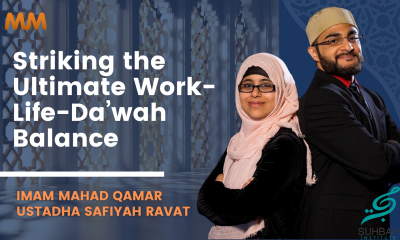By ROGER SCRUTON
Everybody has an opinion about what we ought to do to fix our dreadful financial situation. Here’s a thought: why not listen to Muhammad? True, the Prophet did not hold an economics degree, nor was he a fixture on noisy cable chat shows about finance. Times have changed since the seventh century. But Muhammad knew a thing or two about human nature, which has not changed.
A verse of the Koran says: “Oh ye who believe, do not eat up your property among yourselves in vanities” (An-nisa, 4, 29). This is one of many verses and hadiths interpreted as forbidding interest, insurance, and the trade in debts. The Prophet was appalled by the sale and purchase of unreal things, especially when people sought to forestall the will of God by selling something that they did not possess or which they might never be called upon to provide. Traditional Islamic law therefore forbids many of the commercial constructs that we take for granted: for example, limited liability, which permits people to escape from the consequences of what they do by wearing a corporate mask.
Keep supporting MuslimMatters for the sake of Allah
Alhamdulillah, we're at over 850 supporters. Help us get to 900 supporters this month. All it takes is a small gift from a reader like you to keep us going, for just $2 / month.
The Prophet (SAW) has taught us the best of deeds are those that done consistently, even if they are small.
Click here to support MuslimMatters with a monthly donation of $2 per month. Set it and collect blessings from Allah (swt) for the khayr you're supporting without thinking about it.
Of course, an economy without interest, insurance, limited liability, or the trade in debts would be a very different thing from the world economy today. It would be slow-moving, restricted, and comparatively impoverished. But that’s not the point: the economy proposed by the Prophet was justified not on economic grounds but on moral grounds, as an economy of righteous conduct. Nor is the desire for a moral economy confined to Islam. In the postwar world in which I was raised, economic life was equally circumscribed by moral edicts.
For a long time following World War II, something called “capitalism” was regarded with great suspicion by European elites and also by large sections of the people. Capitalism meant “greed,” “profiteering,” and “exploitation.” Private business was regarded as an assault on public assets, if not on public morals, and in the England of nationalized industries and massive state projects, it was rare to find the “profit motive” referred to except as an object of abhorrence.
Then came the Thatcherite revolution. We lived through what was, in retrospect, a radical transformation in the world of ideas and also in day-to-day politics. Quite suddenly the system that had been condemned as capitalism was being praised as “the market.” Economics, we were told, was not about profit and exploitation but about freedom. The market was not just a social necessity but a moral good. It was the system whereby each person dealt openly and honestly with every other, to the benefit of everyone. It offered freedom and demanded responsibility as the price. The state was no longer the guardian of the common good but the great intruder, the free rider on all our contracts, the robber who took the proceeds of honest workers and distributed them to its pampered clients. After the dreary years of socialist Puritanism, this new morality was undeniably liberating. But it liberated both good things and bad, and never faced up to the truth that had dawned on Muhammad — the truth that, in an economy of fictions, nobody can be called to account.
Whether bubbles of the kind we have recently seen are a necessary part of the trade in unreal estate, I do not know. I suspect that they are, and that the search for regulations that would prevent them is a futile use of public funds and political energy. Nobody can enjoy the sight of people becoming stinking rich by trashing the scant savings of others. But matters are not improved when the state steps in. The underlying premise of state interference is that the state and its clients come first. The main concern of the political class is to ensure that those on whom it immediately depends for an easy life — the bureaucrats and the clients — will be properly provided for, with a reserve fund to buy favor from the discontented. The trade in unreal estate goes on.
The European norm, in which the largest part of the economy is controlled by the state, represents a kind of default position of modern democracies, and one to which the U.S., long the exception in Western politics, is now tending. High taxes on all who work hard, take risks, and keep the economy going, combined with a free ride for all those from whom votes can be most easily purchased — such is the tendency of the democratic state. Nobody in Greece or Portugal has ever doubted it, and only a residual glimmer of the Protestant work ethic has distracted the Germans from the truth that they are not really entitled to complain when the Greek political class tries to transfer the cost of its borrowing, which it cannot pay, to the German taxpayer, who can. For that is what social democracy means, and social democracy has been Germany’s greatest postwar export.
Many economists write learned and technical articles to explain how the current debt crisis arose and how it might be managed. The theory of refinancing and sovereign debt fills many a volume of innocent-seeming graphs and statistics. But this should not blind us to the truth that dawned on the Prophet, which is that we have another and truer way of perceiving these matters: the way of moral judgment. If you borrow money, you are obliged to repay it. And you should repay it by earning the sum required, and not by borrowing again, and then again, and then again. For some reason, when it comes to the state and its clients, those elementary moral truths are forgotten. You may say that there is a disconnect here between economic and moral wisdom. I am not convinced of that. It seems to me that the moral sense emerged in human beings precisely because it has proved to be, in the long run, for their advantage. It is the thing that puts a brake on reckless behavior, which returns the cost of mistakes to the one who makes them, and which expels cheating from the fold.
It hurts to be punished, and states that act wrongly naturally try to avoid the punishment. And because under the current system they can pass on their hurt so easily to the rest of us, we turn a blind eye to their behavior. But I cannot help thinking that the result is at best only a short-term economic advantage, and that the long-term costs will be all the greater. For what we are seeing, in both Europe and America, is a demoralization of economic life. Debts are no longer regarded as obligations to be met, but as assets to be traded. And the cost of them is being passed to our children, to whom we owe protection and who will rightly despise us for stealing what is theirs.
Roger Scruton is a writer and philosopher living in England. His many books includeBeauty and The Uses of Pessimism and the Danger of False Hope. Learn more about him at www.roger-scruton.com.
Source: Big Questions Online




















